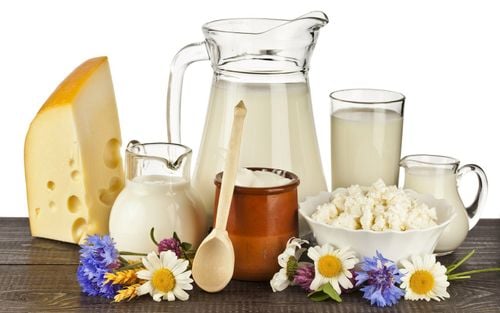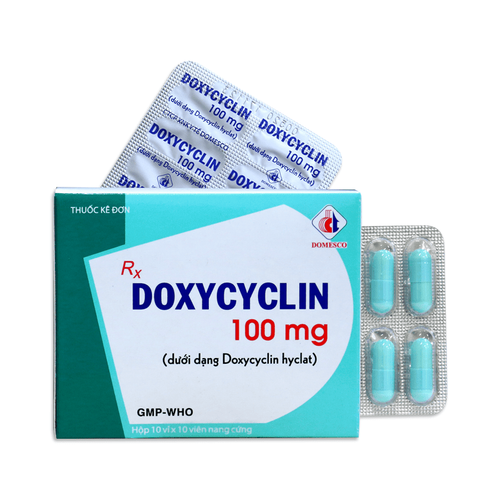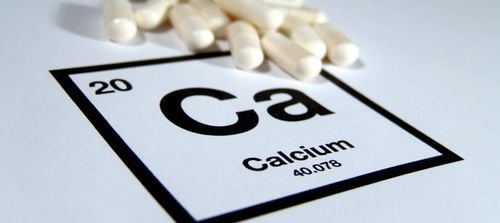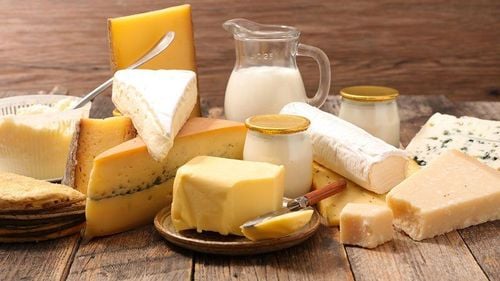This is an automatically translated article.
Vitamin D, also known as the sunshine vitamin, is a fat-soluble vitamin essential for optimal health. Helps your body absorb calcium and maintain adequate levels of magnesium and phosphate - three important nutrients for teeth, muscles and bones. It also plays an important role in brain development, heart function, immune system and mental health.1. Sunshine
Human skin is capable of producing vitamin D when exposed to ultraviolet B (UVB) rays. Most people get at least a certain amount of vitamin D this way.According to the National Institutes of Health (NIH), exposing your face, arms, and legs to sunlight for 5 to 30 minutes twice a week - without sunscreen - is usually enough to produce vitamin D levels Optimal.
However, depending on the geographical location or climate in which the individual lives, absorbing vitamin D through sun exposure may not be as efficient.
Other factors, such as changing seasons, time of day, pollution levels, smog, as well as age, skin color and sunscreen usage habits also affect production. vitamin D of the skin.
For example, smog in the air can reduce the intensity of UV rays by up to 60%. Furthermore, older adults and those with darker skin tones may need significantly longer sun exposure to produce the required levels of vitamin D.
Besides, improper sun exposure can lead to skin cancer. Therefore, the American Academy of Dermatology recommends that users should not take sunlight as the main source of vitamins for the body.

Việc hấp thụ vitamin D qua quá trình phơi nắng có thể không phải một cách hiệu quả
2. Certain types of mushrooms
Certain fungi have the unique ability to produce vitamin D when exposed to UV light.For example, wild mushrooms and those that are artificially exposed to UV light can contain between 154 and 1,136 IU of vitamin D per 3.5-ounce serving.
What's more, their vitamin D content remains high throughout the period of use and seems to be just as effective in increasing vitamin D levels in the body as when taking a vitamin D supplement.
That that said, most common mushrooms on the market if grown in the dark and not exposed to UV rays contain very little vitamin D content.
Users should consider and choose the mushrooms that are suitable for needs by carefully reading the label as well as the nutrition facts sheet on the product packaging before buying.
3. Egg Yolk
Egg yolks provide vitamin D, although the specific amount depends greatly on the diet of the chickens and how they were raised. For example, eggs derived from chickens fed a vitamin-D-rich feed may contain up to 6,000 IU (150 mcg) per yolk, while eggs from conventionally fed chickens only contain 18 to 39 IU (0). ,4 to 1 mcg).Similarly, chickens that are free-range and exposed to sunlight often produce eggs with three times more vitamin D than chickens raised indoors.
Natural eggs or organic chicken eggs tend to have a lot of vitamin D. Users can choose the right control based on the information on the egg packaging.
4. Cheese
Cheese is a natural source of vitamin D, although in very small amounts.Most cheeses contain 8 to 24 IU (0.2 to 0.6 mcg) of vitamin D per 2-ounce (50-gram) serving. The vitamin D content between the varieties varies based on how the cheese is made.
Fontina, Monterey and Cheddar cheeses usually contain more vitamin D, while mozzarella usually has less. Soft cheeses such as laughing cow, ricotta, or cream cheese have virtually no vitamin D.
Some cheeses may also be fortified with vitamin D, and this will be indicated on the label or ingredient list.
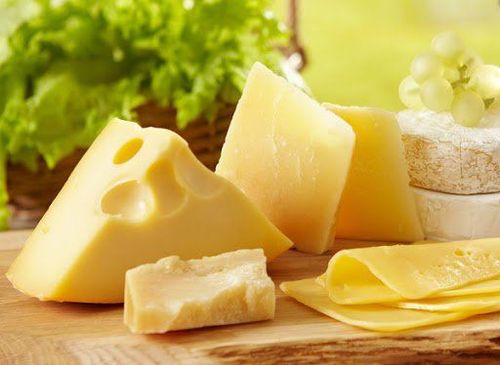
Hàm lượng vitamin D giữa các loại khác nhau dựa trên cách sản xuất phô mai
5. Fortified foods
Although some foods naturally contain small amounts of vitamin D, many products are fortified with this nutrient. Although standards for adding vitamin D to foods vary by country, a few of these foods include:Cow's milk . Depending on the country in which you live, you can find milk fortified with vitamin D, and one cup (240ml) of milk can contain up to 120 IU (3 mcg) of added vitamin D. Sugar-free drinks. Plant-based milks such as soy, rice, hemp, oat or almond milk or orange juice are often fortified with the same amount of vitamin D as cow's milk. Up to 100 IU (2.5 mcg) of vitamin D can be provided per 1 cup (240 ml). Yogurt . Some yogurts provide about 52 IU (1.3 mcg) of this vitamin per 3.5 ounces. Tofu. Not all legumes are fortified with vitamin D, but some are fortified with about 100 IU (2.5 mcg) per 3.5 ounces (100 grams). Hot and cold cereal. Oatmeal and instant cereals are often fortified with vitamin D, with 1/2 cup (120 grams) providing up to 120 IU (3 mcg). Margarine. Unlike margarine which is not usually fortified with vitamin D, many margarine brands add this nutrient. One tablespoon (14 grams) typically provides about 20 IU (0.5 mcg).
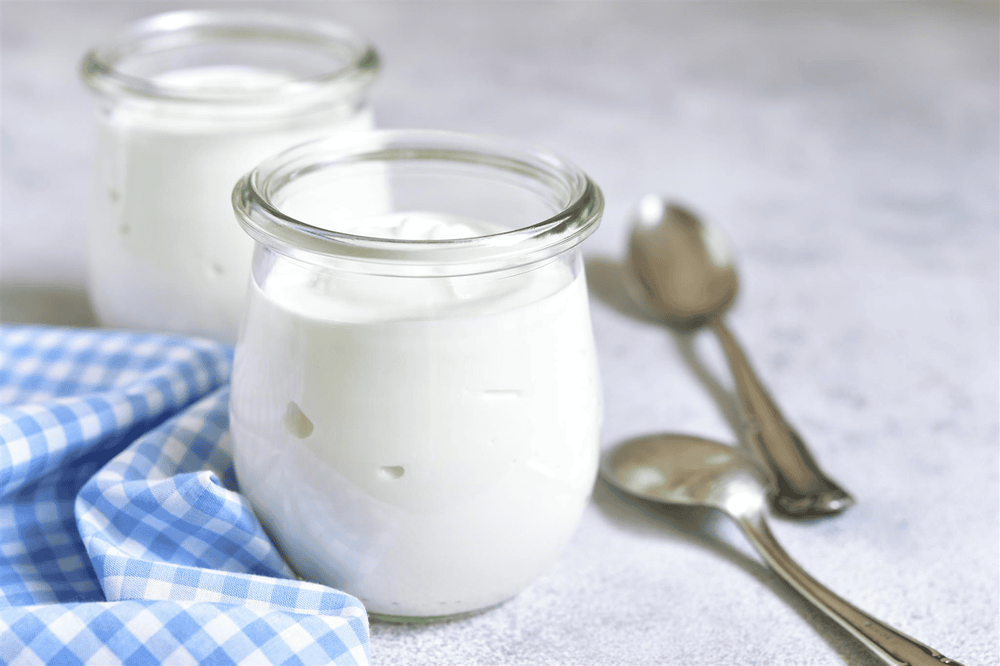
Sữa chua cũng là loại thực phẩm chứa vitamin D, phù hợp với người ăn chay
6. Functional foods
If users have concerns that the body is not getting enough vitamin D from the diet, supplements can act as a reliable and consistent source. Vitamin D supplements generally come in two forms:Vitamin D2: typically harvested from yeast or fungi exposed to UV light Vitamin D3: commonly derived from fish oil, with vegan forms available recently developed from lichen When taken in large doses of 50,000 IU (1,250 mcg) or more, vitamin D3 seems to be more effective at increasing and maintaining blood levels of vitamin D than D2.
However, when taken in smaller, daily doses, the advantage of D3 over D2 seems to be much smaller.
Since vitamin D is fat soluble, taking it with fatty foods can help increase absorption.
The recommended amount of vitamin D falls between 400 and 800 IU (10 to 20 mcg), depending on factors such as age and pregnancy. Long-term use of more than this dose is not recommended to avoid toxicity.
Symptoms of vitamin D toxicity can include memory loss, difficulty concentrating, depression, abdominal pain, vomiting, high blood pressure, hearing loss, mental confusion, and other extremes like depression renal failure and coma.
Periodic health check-ups help to detect diseases early, so that there are treatment plans for optimal results. Currently, Vinmec International General Hospital has general health checkup packages suitable for each age, gender and individual needs of customers with a reasonable price policy.
Results of the patient's examination will be returned to the home. After receiving the results of the general health examination, if you detect diseases that require intensive examination and treatment, you can use services from other specialties at the Hospital with quality treatment and services. outstanding customer service.
Please dial HOTLINE for more information or register for an appointment HERE. Download MyVinmec app to make appointments faster and to manage your bookings easily.
Reference article: Healthline.com



